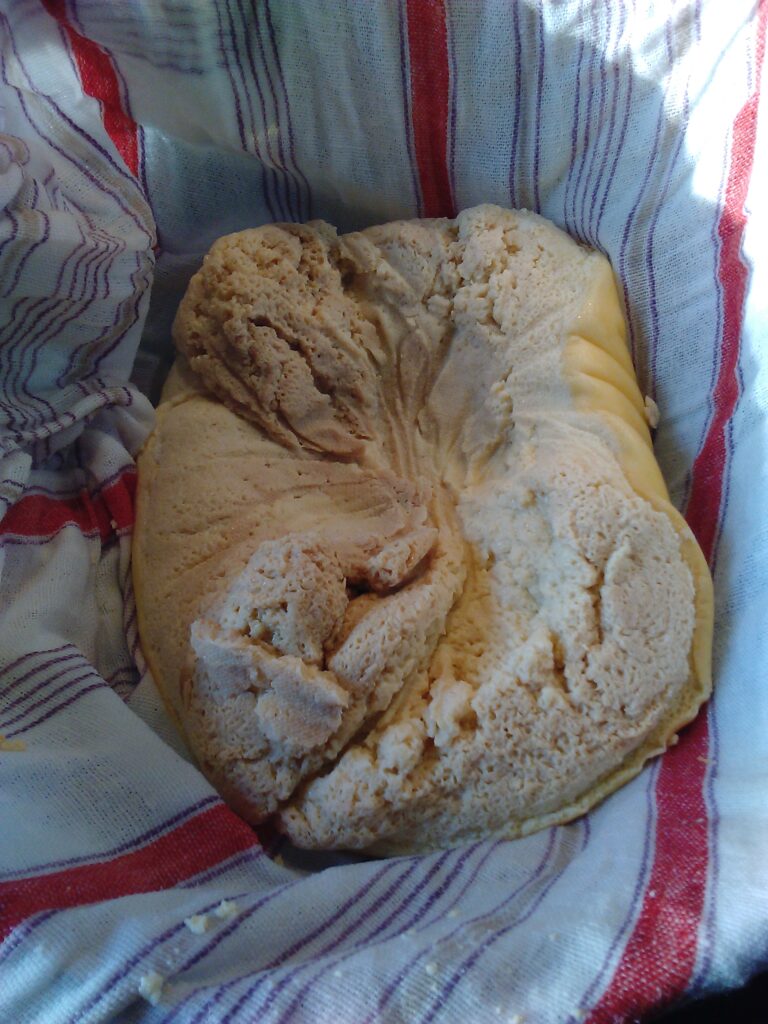I am in South Germany for a really great culinary experience, so with a day of travel ahead, here is a short recipe from the Kuenstlichs und Fuertrefflichs Kochbuch:

76 To Cook a Spoon Dish (Ein Müßkochen)
Take thick milk and boil it in a pan, and when it boils, put it in a pot and set it by the fire. When it boils hard, beat the eggs well and put them into the pot with the thick milk. Let it boil slowly (gemach) that you see it does not curdle completely (gehet … nit gar zusammen) like an egg cheese (ayr keß). Put it in a small bag and leave it hanging one night, thus it drains (zerseyhet). Or place it in a small vat and sew shut the bag so the cheese cannot come out, lay nice bread on it and a stone above to press it. This way, the whey comes out. Tilt the vat, then take the cheese and grind it in a grinding bowl. Add sugar and grind it like a May dish (Mayenmuß), but it is to be thick like an egg porridge (ayr prey). If it is too thick, pour on a little rosewater, then it smells of that. It is eaten cold.
This is broadly similar to the hard custard that is known as “fake udder” in the Inntalkochbuch and other comparable dishes, but here, it is not roasted. Grinding it up and serving it cold and sweetened fits the fashion of the Renaissance, but it is possible that here is more to it. The “thick milk” referred to in the beginning may be closer to cream than milk, and the consistency aimed for is acknowledge as different from “egg cheese”. I cannot quite envision how, but it is a good field to try variations and see what comes out.
The short Kuenstlichs und Fuertrefflichs Kochbuch was first printed in Augsburg in 1559 and reprinted in Nuremberg in 1560 and subsequently. Despite its brevity, it is interesting especially as it contains many recipes for küchlein, baked or deep-fried confections, that apparently played a significant role in displaying status. We do not know who the famous cook referenced in the title may have been or if he ever existed.
